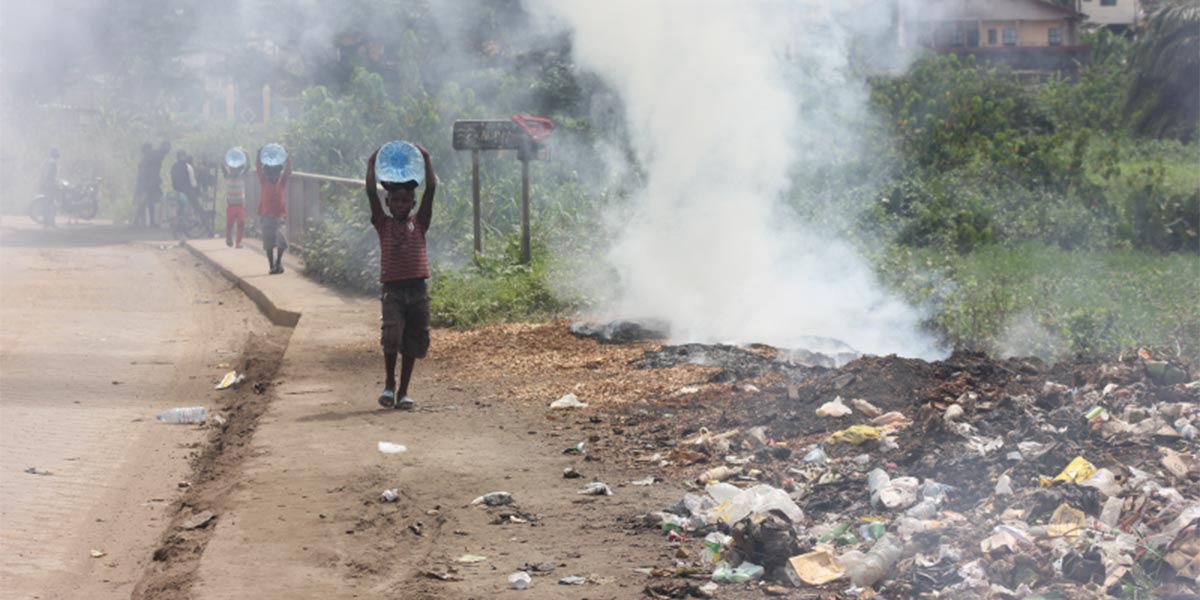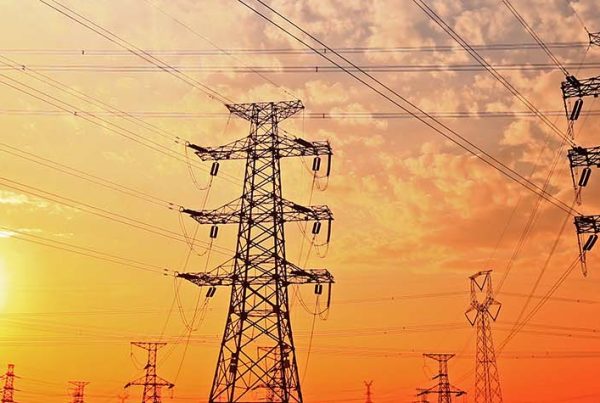At WasteAid, we work with communities and policy makers in low and middle-income countries to implement waste management and recycling programmes. Our work improves the livelihoods of some of the poorest and most marginalised, promotes circular economy innovation and contributes to a cleaner and healthier future for all.
WasteAid is active in eight countries across Africa and Asia.
Anyone who has travelled or worked overseas in a development context will have had some exposure to the critical issue of waste management – whether this is through the sight of waste-filled open sewers, waste-strewn streets or polluted waterways, perhaps too the acrid smell of burning plastics adding to air pollution.
This is a sensory reminder that 1 out of 3 people worldwide are forced to dump or burn their waste. Apart from the obvious immediate unpleasantness of tonnes upon tonnes of unmanaged waste, perhaps there is little further consideration of ‘the waste crisis’.
Although rarely at the top of the agenda, waste poses a significant risk to public health and the environment, as well as the climate. Those working informally in waste management (0.5% urban populations in LMICs) are usually among the most vulnerable, and WasteAid is all too familiar with the harsh realities these communities face in their day-to-day work.
Despite the negative effects of poorly managed waste, what we discard can also offer opportunities that may not be entirely obvious at first glance. WasteAid will soon be celebrating six years of its pioneering approach to waste and development. Our programmes focus on waste management, recycling, microbusiness support and enterprise development, as well as circular economy innovation.
Through our growing Circular Economy Network in India, South Africa and Vietnam, we are supporting grassroots initiatives and the most marginalised whilst also rewarding innovation through business incubation opportunities and seed funding. We work at community level, we engage municipalities and interact with policy makers to improve systems and share knowledge. We take a market systems approach to our work. Our funding support and our response to the waste crisis can be rooted in both civil society responses and corporate sector collaboration.
The consequences of poor waste management are severe, particularly for lower and middle income countries, affecting both people and planet.
Health consequences include increased respiratory illnesses due to burning waste, higher levels of insect borne illnesses due to open dumping, and greater prevalence of watery diarrhoea and other illnesses due to blocked and polluted waterways. In the era of COVID 19, effective disposal of face masks and of potentially contaminated materials adds an extra layer of complexity for countries already struggling to dispose of their waste safely. It is the poorest that often bear the heaviest disease burden and for those living in extreme poverty, this can lead to increased mortality. The environmental consequences of poor waste management are no less serious: burning waste contributes to the climate crisis through greenhouse gases, contaminated soil and waterways put ecosystems at risk and the dirt and odour from unmanaged waste degrades the general environment.
Waste and the work of WasteAid cuts across most of the Sustainable Development Goals and our work impacts directly at least eight of them. It is for this reason that waste management and recycling opportunities should be recognised as a crucial vehicle for sustainable development. In certain contexts, WasteAid recognises that technical innovation is critical to development, but the majority of our work in LICs, particularly in Africa, is centred around low tech, locally appropriate solutions to ensure sustainability.
The link between waste, clean water and improved sanitation and health is likely clear to all, even if the direct contribution of waste management alone is often difficult to quantify.
Waste collection and recycling opportunities can provide sustainable livelihood opportunities (particularly in green recovery activities). Livelihoods opportunities in waste can span the use of recycled materials to make crafts to the production of artisan-made household objects, right through to the cleaning, sorting and selling of waste materials, particularly plastic, on an industrial scale.
Many of these types of responses can lend themselves well to poverty alleviation activities that are pro-poor and inclusive of the most vulnerable groups. At WasteAid, we recognise opportunities for an ever-stronger gender focus in our programmes. Women are well represented in the informal waste management and recycling sector, since it can offer decent, flexible work; and women are also the most affected by a lack of waste management services as they are responsible for domestic waste disposal, often burning household waste in the yard while taking care of children. WasteAid is currently further developing its gender policy and reflecting on how we can strengthen this element of our work.
Waste occupies a central point in development where people and planet meet. By recognising the economic value of waste and developing responses that generate income, we are at the same time reusing items of no or low value and cleaning the environment. Never has this approach been more recognised than in the post-Blue Planet world. Preventing waste, particularly plastics, from reaching waterways and the world’s oceans allows eco-systems to thrive, and the marine life on which so many livelihoods are based to flourish.
Waste management and all its constituent parts is as much needed for land and sea as for the air we breathe! Urbanisation has a compounding impact on waste, as more people require more packaged products. In Asia the waste crisis is growing, out of control even, although it is heartening to see engagement in circular economy initiatives. In Africa there is still some way to go before the waste crisis reaches such levels. There is still time to act to prevent high economic, human and environmental costs. We ask that waste is always considered in whatever programming you implement – be it prevention, reuse or recycling.
Globally, if we want to reach a point where waste ceases to pollute the very environment we need to live, we must work together in a cross-sectoral, collaborative way to achieve results. If policy makers receive compelling evidence of the cost saving that can be achieved by pro-poor waste management delivered from several diverse perspectives, if entrepreneurs recognise the potential business to be made through waste, if communities are enabled to avoid dumping or burning waste, and if funders recognise the central role waste management plays in development, then we will be well on the road to success. As 2021 is the year of COP26, WasteAid will be disseminating this message as widely as possible and we are optimistic of an increasingly receptive audience.

Ceris Turner-Bailes
Ceris Turner-Bailes joined award-winning charity WasteAid as Chief Executive in 2020. Throughout her career, Ceris has worked internationally leading programmes, research, and advocacy initiatives for governments, NGOs and the private sector. She has worked extensively in community-based programming, as well as in the policy environment, and her work has always had a strong focus on partnership, quality and impact.
Ceris has worked across a number of development sectors including poverty alleviation, health and water and sanitation. She has delivered complex programmes on the ground in challenging contexts as well as strategically developing global programmes and international organisations. Her overseas experience includes extensive work across Sub Saharan Africa, MENA region, Central Asia, the Americas and Caribbean, as well as Eastern Europe and The Balkans. Ceris holds two Bachelors degrees, including a BA (Hons) in History from King’s College, London and a postgraduate qualification in International Development.



